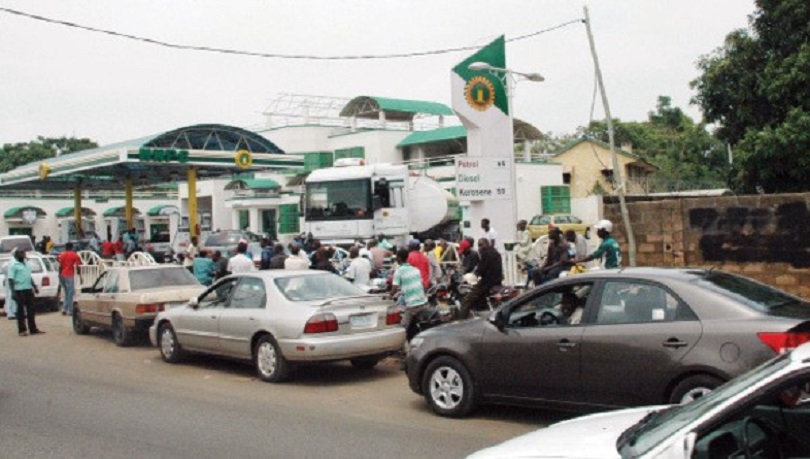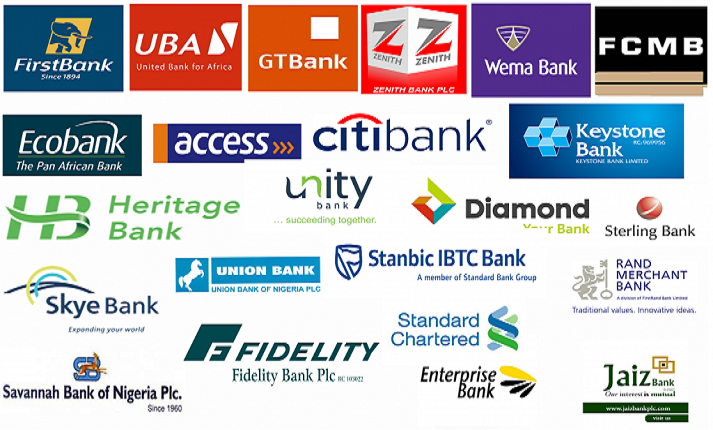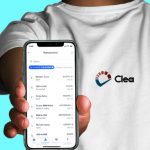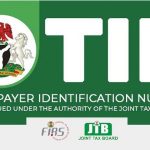Economy
Fitch Fears Another Naira Devaluation, Downgrades 3 Banks

By Dipo Olowookere
The ratings of three banks in Nigeria have been downgraded Fitch Ratings amid fears that their operations would be negatively impacted by a further devaluation of the Naira.
A statement issued by the agency said the banks and others in the country will face material pressures from a weaker operating environment over the next few months given the price of crude oil and the impact of the COVID-19 pandemic on individuals and businesses.
The downgraded lenders are Zenith Bank, Guaranty Trust Bank (GTBank) and United Bank for Africa (UBA). Their ratings were lowered to Long-Term Issuer Default Rating (IDR) ‘B’ and Viability Rating (VR) ‘b’.
In the statement, Fitch said it has also placed the Long-Term IDRs, VRs and National Ratings of all 10 rated Nigerian banks (excluding Stanbic IBTC Holdings and Stanbic IBTC Bank, which are not assigned VRs and IDRs) on Rating Watch Negative (RWN).
According to the rating firm, before the current crisis, its outlook for the Nigerian banking sector was negative, which reflected tough operating conditions, including slow GDP growth, rising regulatory risks and potential performance pressures.
Fitch said it expects banks’ credit profiles to suffer from weaker asset quality and reduced profitability in the more severe downside scenario.
“Based on experiences from 2015/2016, we expect the current oil price shock to adversely impact the oil and gas sector.
“This sector accounts for around 30 percent of the banking sector’ gross loans, of which a large proportion was restructured during the previous crisis (some are still classified as Stage 2 under IFRS 9).
“Our stress tests show that asset-quality risks arising from deterioration of the banks’ oil and gas exposures are the biggest threat to their ratings.
“Additionally, we expect the non-oil segment to be impacted by the slower economy, but also due to the COVID-19 crisis, which could severely affect communities and industries. It would particularly test the quality of consumer and SME loans,” it said.
Fitch noted that lower oil revenues also raise the prospect of a material Naira devaluation, which would put pressure on the banks’ regulatory capital ratios.
However, it stated that given the banks’ net long foreign-currency positions, its stress tests show that in most cases the impact on Fitch Core Capital (FCC) ratios is tolerable under several scenarios.
“Nigerian banks have reasonable loss absorption buffers, underpinned by strengthened capitalisation since the last crisis.
“In the near-term, healthy earnings will continue to absorb larger credit losses but future profits will be under pressure from slowing loan growth, reduced client activity and higher levels of provisioning for expected credit losses under the IFRS 9 accounting framework,” it noted.
Fitch added that, “On balance, the near-term impact from the oil price shock and COVID-19 on funding and liquidity is likely to be tolerable.
“The primary risk is that lower oil revenues (and Nigeria’s falling FX reserves) could limit banks’ access to foreign currency (FC) liquidity.
“Furthermore, adverse global conditions could impede some banks in raising external financing. Local-currency liquidity remains strong with banks funded mainly by low-cost customer deposits.”
Fitch said it will resolve the RWN once it has assessed how this economic shock impacts the banking system and the credit profiles of each bank, as well as the banks’ ability to adapt.
The Central Bank of Nigeria (CBN) recently announced relief measures, which should alleviate some near-term asset-quality pressures.
Some of these include requesting banks to restructure loan tenors and terms for consumers and business that are most affected, particularly borrowers in the oil and gas, agriculture and manufacturing sectors.
Economy
Petrol Supply up 55.4% as Daily Consumption Reaches 52.1 million Litres

By Adedapo Adesanya
The supply of Premium Motor Spirit (PMS), also known as petrol, increased by 55.4 per cent on a month-on-month basis to 71.5 million litres per day in November 2025 from 46 million litres per day in October.
This was contained in the November 2025 fact sheet of the Nigerian Midstream and Downstream Petroleum Regulatory Authority (NMDPRA) on Monday.
The data showed that the nation’s consumption also increased by 44.5 per cent or 37.4 million litres to 52.1 million litres per day in November 2025, against 28.9 million litres in October.
The significant increase in petrol supply last month was on account of the imports by the Nigerian National Petroleum Company (NNPC) Limited into the Nigerian market from both the domestic and the international market.
Domestic refineries supplied in the period stood at 17.1 million litres per day, while the average daily consumption of PMS for the month was 52.9 million litres per day.
The NMDPRA noted that no production activities were recorded in all the state-owned refineries, which included Port Harcourt, Warri, and Kaduna refineries, in the period, as the refineries remained shut down.
According to the report, the imports were aimed at building inventory and further guaranteeing supply during the peak demand period.
Other reasons for the increase, according to the NMDPRA, were due to “low supply recorded in September and October 2025, below the national demand threshold; the need for boosting national stock level to meet the peak demand period of end of year festivities, and twelve vessels programmed to discharge into October, which spilled into November.”
On gas, the average daily gas supply climbed to 4.684 billion standard cubic feet per day in November 2025, from the 3.94 bscf/d average processing level recorded in October.
The Nigeria LNG Trains 1-6 also maintained a stable processing output of 3.5 bscf/d in November 2025, but utilisation improved slightly to 73.7 per cent compared with 71.68 per cent in October.
The increase, according to the report, was driven by higher plant utilisation across processing hubs and steady export volumes from the Nigeria LNG plant in Bonny.
“As of November 2025, Nigeria’s major gas processing facilities recorded improved output and utilisation levels, with the Nigeria LNG Trains 1-6 processing 3.50 billion standard cubic feet per day at a utilisation rate of 73.70 per cent.
“Gbaran Ubie Gas Plant processed 1.250 bscf per day, operating at 71.21 per cent utilisation, while the MPNU Bonny River Terminal recorded a throughput of 0.690 bscf per day during the period. Processing activities at the Escravos Gas Plant stood at 0.680 bscf per day, representing a 62 per cent utilisation rate, whereas the Soku Gas Plant emerged as the top performer, processing 0.600 bscf per day at 96.84 per cent utilisation,” it stated.
Economy
Secure Electronic Technology Suspends Share Reconstruction as Investors Pull Out

By Aduragbemi Omiyale
The proposed share reconstruction of a local gaming firm, Secure Electronic Technology (SET), has been suspended.
The Lagos-based company decided to shelve the exercise after negotiations with potential investors crumbled like a house of cards.
Secure Electronic Technology was earlier in talks with some foreign investors interested in the organisation.
Plans were underway to restructure the shares of the company, which are listed on the Nigerian Exchange (NGX) Limited.
However, things did not go as planned as the potential investors pulled out, leaving the board to consider others ways to move the firm forward.
Confirming this development, the company secretary, Ms Irene Attoe, in a statement, said the board would explore other means to keep the company running to deliver value to shareholders.
“This is to notify the NGX and the investing public that a meeting of the board of SET held on Tuesday, December 16, 2025, as scheduled, to consider the status of the proposed share reconstruction and recapitalisation as approved by the members at the Extraordinary General Meeting (EGM) held on April 16, 2025.
“After due deliberations, the board wishes to announce that the proposed share reconstruction will not take place as anticipated due to the inability of the parties to reach a convergence on the best and mutually viable terms.
“Thus, following an impasse in the negotiations, and the investors’ withdrawal from the transaction, the board has, in the interest of all members, decided to accept these outcomes and move ahead in the overall interest of the business.
“The board is committed to driving the strategic objectives of SEC and to seeking viable opportunities for sustainable growth of the company,” the disclosure stated.
Business Post reports that the share price of SET crashed by 3.85 per cent on Tuesday on Customs Street on Tuesday to 75 Kobo. Its 52-week high remains N1.33 and its one-year low is 45 Kobo. Today, investors transacted 39,331,958 units.
Economy
Clea to Streamline Cross-Border Payments for African Importers

By Adedapo Adesanya
Clea, a blockchain-powered platform that allows African importers to pay international suppliers in USD while settling locally, has officially launched.
During its pilot phase, Clea processed more than $4 million in cross-border transactions, demonstrating strong early demand from businesses navigating the complexities of global trade.
Clea addresses persistent challenges that African importers have long struggled with, including limited FX access, unpredictable exchange rates, high bank charges, fraudulent intermediaries, and payment delays that slow or halt shipments. The continent also faces a trade-finance gap estimated at over $120 billion annually, limiting importers’ ability to access the FX and financial infrastructure needed for timely international payments by offering fast, transparent, and direct USD settlements, completed without intermediaries or banking bottlenecks.
Founded by Mr Sheriff Adedokun, Mr Iyiola Osuagwu, and Mr Sidney Egwuatu, Clea was created from the team’s own experiences dealing with unreliable international payments. The platform currently serves Nigerian importers trading with suppliers in the United States, China, and the UAE, with plans to expand into additional trade corridors.
The platform will allow local payments in Naira with instant access to Dollars as well as instant, same-day, or next-day settlement options and transparent, traceable transactions that reduce fraud risk.
Speaking on the launch, Mr Adedokun said, “Importers face unnecessary stress when payments are delayed or rejected. Clea eliminates that uncertainty by offering reliable, secure, and traceable payments completed in the importer’s own name, strengthening supplier confidence from day one.”
Mr Osuagwu, co-founder & CTO, added, “Our goal is to make global trade feel as seamless as a local transfer. By connecting local currencies to global transactions through blockchain technology, we are removing long-standing barriers that have limited African importers for years.”
According to a statement shared with Business Post, Clea is already working with shipping operators who refer merchants to the platform and is also engaging trade associations and logistics networks in key import hubs. The company remains fully bootstrapped but is open to strategic investors aligned with its mission to build a trusted global payment network for African businesses.
-

 Feature/OPED6 years ago
Feature/OPED6 years agoDavos was Different this year
-
Travel/Tourism9 years ago
Lagos Seals Western Lodge Hotel In Ikorodu
-

 Showbiz3 years ago
Showbiz3 years agoEstranged Lover Releases Videos of Empress Njamah Bathing
-

 Banking8 years ago
Banking8 years agoSort Codes of GTBank Branches in Nigeria
-

 Economy3 years ago
Economy3 years agoSubsidy Removal: CNG at N130 Per Litre Cheaper Than Petrol—IPMAN
-

 Banking3 years ago
Banking3 years agoFirst Bank Announces Planned Downtime
-

 Banking3 years ago
Banking3 years agoSort Codes of UBA Branches in Nigeria
-

 Sports3 years ago
Sports3 years agoHighest Paid Nigerian Footballer – How Much Do Nigerian Footballers Earn














